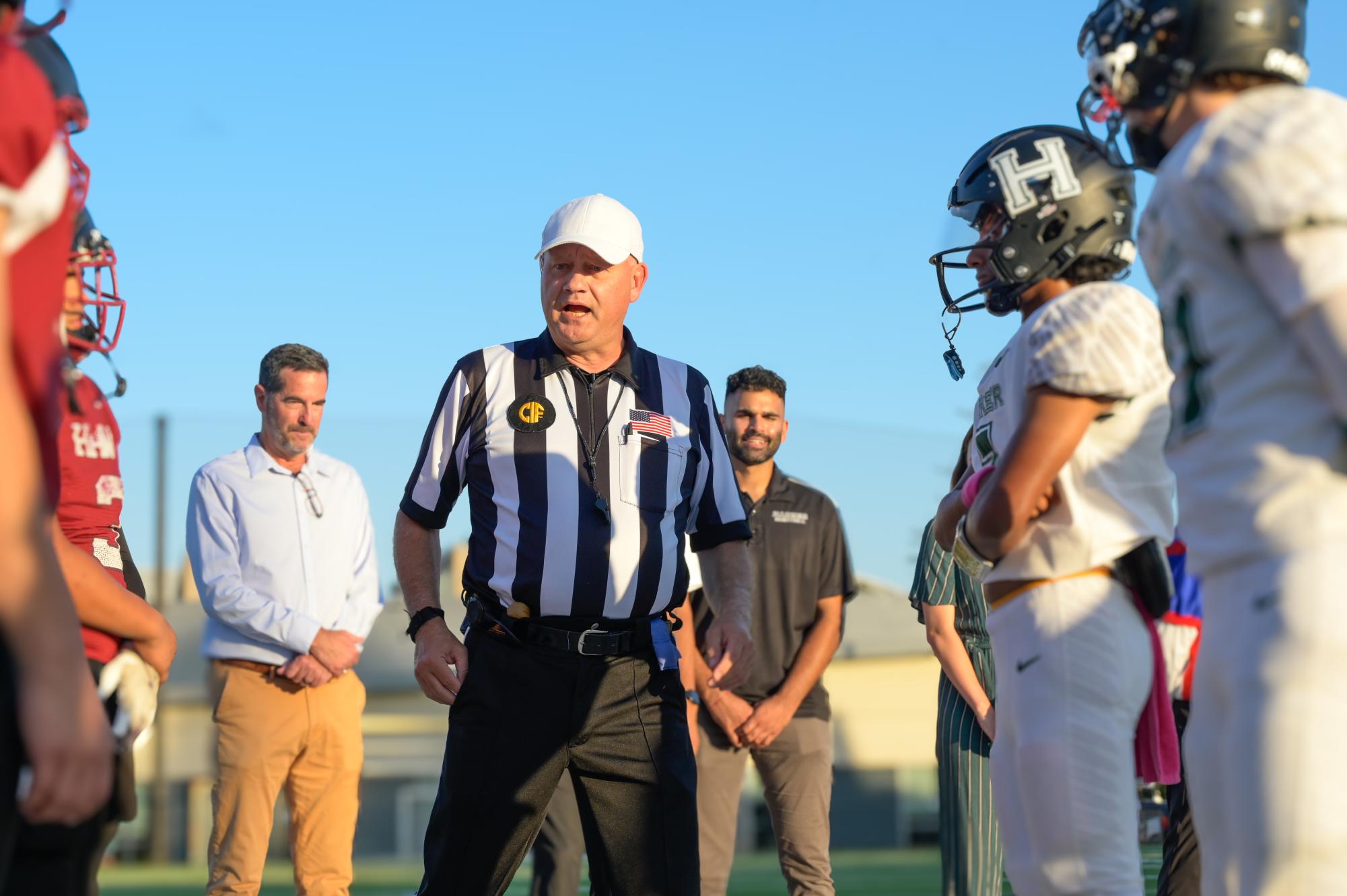This season, varsity football only played three home games on Fridays. Without enough referees to supply the demand for Friday Night Lights, the Harker community continues to miss out on an iconic fixture of high school athletics.
Ever since the COVID-19 pandemic, high school sports like football, volleyball, lacrosse and basketball have faced referee shortages. Bay Area Sports Officials (BASO), the organization that supplies most referees for Harker sports, lost over 50% of their referees.
“We went through a very tough period with the pandemic,” BASO sports officiator Tom Gersey said. “When the economy went soft, officials couldn’t afford to live here in the Bay Area, and they ended up moving out of state, going to other places.”
Owner of BASO Rick Moore estimates that only about 20% of the officials who left during Covid have returned, limiting the number of experienced referees available.
“The officials didn’t work for almost a year,” Moore said. “Some of them were either older or at a certain point were thinking, ‘It was fun to not have to officiate.’ Since COVID gave them the time off, they were not wanting to come back.”
Some, who would have otherwise returned, were deterred by the abuse they received from parents and coaches. The number one reason for referees leaving their jobs has been the abuse from spectators and players according to the Sports Journal. Moore asks that fans treat the officials with respect and dignity.
“I heard my officials last night being yelled at to retire, and that’s just ridiculous,” Moore said. “If you don’t have the officials, you don’t have a game. So if you wanna continue to brow beat us and abuse us, then the officials won’t come back.”
At Harker, Athletic Director Dan Molin helps to ensure officials are provided with refreshments and treated with kindness.
“When they come here, we offer them water, we shake their hands,” Molin said. “We greet them. Other sites, they don’t, they’re just ignored, and they just come and do their job and leave. We want to make sure that they’re respected here.”
This year, 11 referees in BASO with over 20 years of experience retired or moved. Because first year officials can only take on assistant positions, fewer games can be held. New officials take from two to ten years to build up the experience needed in more difficult roles like white hat in football or center official in soccer.
“If the player makes a mistake, it’ll be alright,” Moore said. “The official makes a mistake and there’s no forgiveness. I understand everybody wants a perfect world, but it’s not a perfect world, especially in high school sports. You watch the NFL, you watch major league baseball, they all make mistakes. So if they make mistakes at that highest level, do you think we’re going to be perfect here?”
Due to the shortage, athletics programs and BASO struggle to work out games scheduling. While the organization currently employs around 110 officials for football, they need about 40 more to meet the demand.
Without greater respect from the sidelines, players and spectators will have to face cancellations and rescheduling, especially with Friday night football games. For senior Kylie Anderson and other fans, football has always served as a point of community, where people can spend time with friends and cheer on the team.
“Football has never been very big at this high school, but football is used to rally everybody together for spirit,” Kylie said. “During homecoming week, everybody’s like, ‘do this, do this, do this’ and then it leads up to the big game but with nobody really following the football team or keeping up with it, it’s definitely diminishing spirit overall.”
In their role, referees facilitate a strong community by enabling games to be played. Their service, which typically comes from their passion for their sport, should be better appreciated and acknowledged.
“People generally are officials because they love the game,” Molin said. “They want to give back. It’s not for the money they get paid. They do it because they like their sport, and they want to give back to the community.”



